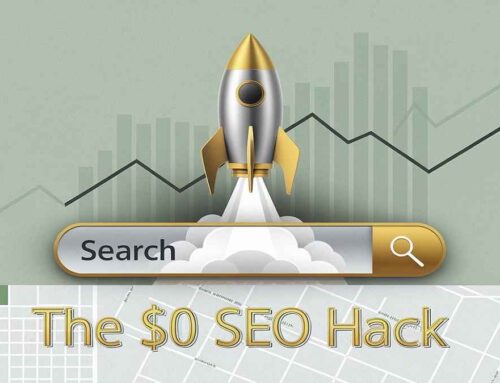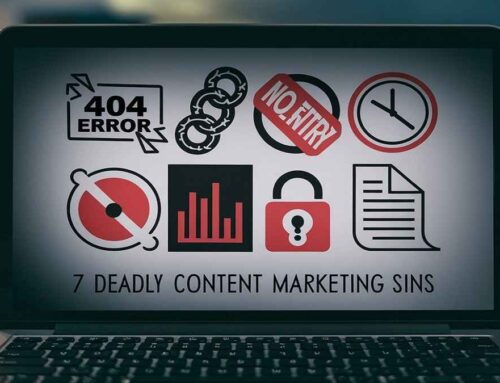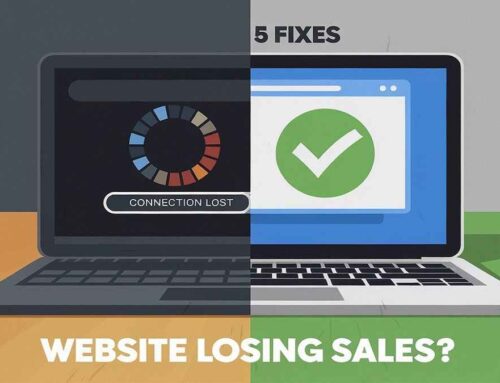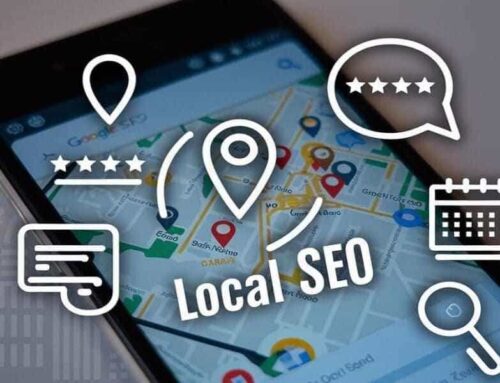
Marketing Automation Mastery
Are you ready to unlock the full potential of your marketing strategy with the power of automation? For US businesses looking to scale effectively and efficiently, Marketing Automation Mastery is the key. It allows companies to streamline processes, maximize productivity and reach their audiences with laser-focused precision.
In this post, we’ll explore what marketing automation mastery truly entails, how to implement it and strategies to harness its potential for growth. If you’re interested in automation mastery but aren’t sure where to start, you’re in the right place.
Why Marketing Automation Mastery is Essential for Growth
Today’s fast-paced market requires businesses to do more with less. For small to medium businesses, finding efficient ways to engage with customers and maintain consistency across campaigns can be a real challenge. That’s where Marketing Automation Mastery comes in.
Marketing automation tools handle repetitive tasks, streamline workflows and make campaigns more personalized. By mastering automation, you free up resources to focus on growth-driving tasks, all while enhancing the customer experience.
Consider this: Have you ever wondered how much time your business could save by automating marketing tasks? Or how automation could create more meaningful customer interactions? Let’s dive in to see how you can make it happen.
Strategy 1: Understanding the Core of Marketing Automation Mastery
Before you jump in, it’s important to understand what marketing automation is and what it isn’t. Marketing Automation Mastery means not only automating repetitive tasks but also using data-driven insights to improve campaign effectiveness. Automation tools let you nurture leads, segment audiences, track behaviors and, ultimately, make smarter marketing decisions.
Key Components of Marketing Automation
- Lead Nurturing: Automate lead follow-up to maintain consistent engagement.
- Segmentation: Create audience segments based on demographics, behavior and purchase history.
- Campaign Management: Streamline email marketing, social media posts and ad campaigns.
- Analytics: Use data to continuously refine and improve your strategies.
When applied thoughtfully, automation doesn’t just save time; it creates more meaningful, data-backed customer journeys that lead to loyalty and higher conversion rates.
Strategy 2: Automate Lead Generation and Scoring
One of the most significant advantages of marketing automation is its ability to enhance lead generation. Automation allows you to generate, capture and score leads based on their level of engagement. This helps your sales team focus on high-quality leads that are likely to convert, ultimately boosting revenue.
Implementing Lead Scoring
Lead scoring lets you assign values to leads based on various factors, such as interaction frequency, content engagement and purchase history. By setting up an automated lead scoring system, you’re able to prioritize leads efficiently.
Consider this: How much more could your sales team accomplish if they spent time on high-quality leads alone? With a well-structured lead scoring system, you’re not just collecting leads, you’re curating a pool of potential loyal customers.
Strategy 3: Streamline Email Marketing with Automation
Email marketing remains a highly effective channel and with marketing automation, you can elevate it even further. Marketing automation tools enable you to personalize content, create segmented lists and send timely emails based on user actions.
Creating Personalized Email Journeys
Effective email marketing goes beyond a simple “blast” to all contacts. Automation allows you to send targeted messages that resonate with specific segments of your audience. For instance, you can send a personalized welcome series to new subscribers, abandoned cart reminders or product recommendations based on browsing history.
Strategy 4: Enhance Customer Retention with Automated Customer Journeys
Did you know that retaining an existing customer costs far less than acquiring a new one? With marketing automation, you can create tailored customer journeys that maintain engagement post-purchase. By nurturing customers, you build loyalty and encourage repeat purchases, all of which drive long-term growth.
Developing Lifecycle Marketing Campaigns
Lifecycle marketing focuses on each stage of the customer journey, from acquisition to retention. Automation allows you to create campaigns tailored to each lifecycle stage, such as welcome messages, post-purchase follow-ups and re-engagement emails for inactive users.
With automation, every stage of your customer’s journey can be enriched, keeping your brand at the forefront of their minds.
Strategy 5: Gain Insights with Automated Analytics and Reporting
Automation isn’t just about doing things faster, it’s also about doing them smarter. By tracking customer interactions, marketing automation platforms collect vast amounts of data that provide insights into user behavior, campaign performance and revenue growth.
Using Analytics to Refine Your Approach
Advanced analytics helps you understand what’s working and what’s not, allowing you to adapt your strategies accordingly. Automation tools compile metrics such as email open rates, click-through rates and conversion statistics. Use this data to refine your campaigns continuously, boosting engagement and optimizing for results.
Think about it: How could real-time data influence your next campaign? By having insights at your fingertips, you can make informed adjustments that maximize effectiveness.
Strategy 6: Master Social Media Scheduling and Analytics
For many businesses, social media is an essential channel for reaching new customers. However, managing multiple social media platforms can be time-consuming. Marketing automation simplifies this by allowing you to schedule posts, track engagement and analyze results across platforms.
Building a Consistent Social Presence
With automation, you can set up a posting calendar and ensure consistency across all channels. Social media automation platforms also enable you to monitor engagement metrics, helping you identify which posts resonate most with your audience.
Strategy 7: Simplify Content Management with Automated Workflows
Content marketing is essential for building brand authority and attracting leads, but it can quickly become overwhelming. With automated workflows, you can streamline content creation, approval and publishing, saving time and ensuring consistency.
Coordinating Content Across Teams
Automated workflows keep your team aligned and reduce the bottlenecks associated with content approvals and publishing. For example, if you have a content calendar for blogs, newsletters and social media, workflows make sure that content moves smoothly from draft to approval to publication.
Automation platforms often come with built-in content management features, ensuring every piece aligns with your overarching brand strategy.
Strategy 8: Use Automation to Foster Stronger Customer Relationships
One of the most impactful ways to leverage marketing automation is to build stronger, more meaningful relationships with your customers. Automation lets you personalize interactions and ensure customers receive the right message at the right time.
Automating Feedback Collection
Send out automated feedback surveys after purchases or interactions to understand your customers’ needs and preferences. Customer feedback not only informs product improvements but also shows customers that you value their input, reinforcing brand loyalty.
Customer relationship management (CRM) software can integrate seamlessly with automation tools, offering a holistic view of each customer interaction.
Strategy 9: Drive Revenue with Automated Upselling and Cross-Selling
Marketing automation doesn’t end with lead generation, it can also enhance sales. Automated upselling and cross-selling messages target existing customers with personalized product suggestions based on their purchase history and browsing behavior.
Tailoring Offers to Customer Preferences
Using automation for upselling means suggesting premium versions or add-ons to products they’re already interested in. Cross-selling, on the other hand, suggests complementary products that enhance their purchase.
These automated messages increase the average order value, translating into more revenue and a better overall experience for your customers.
Strategy 10: Secure Your Data with Automated Compliance Management
As data privacy regulations become stricter, it’s crucial to handle customer data responsibly. Marketing automation platforms can help you stay compliant by managing opt-ins, recording consent and ensuring data security.
Building Trust with Transparent Data Practices
Transparency builds customer trust. Marketing automation tools make it easy to update preferences, unsubscribe links and consent records, helping your business avoid penalties and build trust with customers. Automated compliance management protects both your business and your audience.
Strategy 11: Explore AI-Powered Marketing Automation
Artificial intelligence (AI) takes marketing automation to new heights. AI-driven automation tools can predict customer behaviors, optimize content and even personalize messages on an individual level.
Leveraging AI for Smarter Campaigns
With AI, you can create hyper-targeted campaigns based on deep customer insights. AI analyzes vast amounts of data, allowing for real-time optimizations that align with customer preferences, resulting in higher engagement and conversions.
Imagine a campaign that not only personalizes emails but adapts them based on real-time behavior, creating a customized experience that resonates deeply with each customer.
Strategy 12: Optimize Budget Allocation with Automation
With automation, businesses gain better control over marketing budgets. Automated platforms offer insights into ROI, enabling you to allocate resources to the highest-performing channels.
Analyzing Campaign Performance for Optimal Budgeting
By understanding which campaigns bring the most value, you can allocate budgets effectively, ensuring you get the best returns on your investment. For example, if email marketing yields higher conversions than social media ads, automation lets you pivot your strategy accordingly.
Conclusion: Achieve Marketing Automation Mastery for Sustainable Growth
Achieving Marketing Automation Mastery isn’t just about implementing tools; it’s about using them strategically to enhance customer relationships, streamline processes and drive sustainable growth. From automated lead generation to data-driven insights, automation opens up new possibilities for US businesses looking to scale.
By leveraging these strategies, you’re setting the foundation for efficiency, consistency and lasting customer loyalty. Embrace automation to elevate your business’s potential, free up valuable resources and achieve mastery in a world where digital engagement is paramount.
Ready to begin your journey to marketing automation mastery? The time to start is now.














